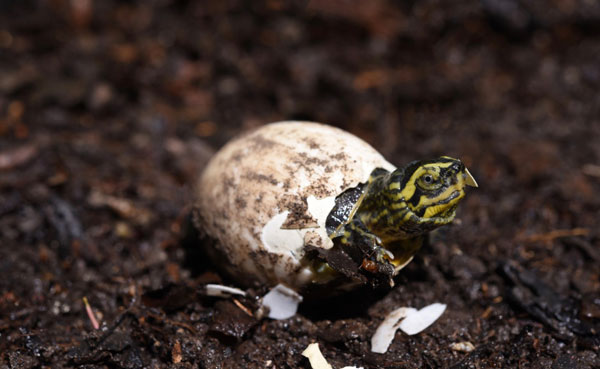How Long Does It Take for Turtle Eggs to Hatch?
Understanding the timeline for turtle hatching is crucial for enthusiasts and conservators alike. This article explores the time it takes for various turtle species to hatch their eggs, along with practical steps you should take if you discover turtle eggs in your yard.

How Long Do Turtle Eggs Take to Hatch?
The hatching time for turtle eggs can be influenced by several factors such as species, temperature, and environmental conditions. Generally, the incubation periods can vary significantly even within the same species. Most turtle eggs will hatch within 45-75 days, but some can take as long as 90 days, especially if temperatures are on the cooler side. Factors such as proper hydration and humidity levels also play a role.
How Long Do Box Turtle Eggs Take to Hatch?
Box turtle eggs generally take 70 to 90 days to hatch. The specific duration can depend heavily on environmental factors, particularly temperature. Cooler temperatures can prolong the incubation period. On average, an incubation temperature of around 80 degrees Fahrenheit is ideal. Box turtles usually lay eggs in early summer, and it is common for the eggs to hatch by late summer or early fall.
How Long Does It Take Snapping Turtle Eggs to Hatch?
Snapping turtles typically take about 80 to 90 days to hatch their eggs. The incubation period is highly sensitive to the temperature of the surrounding environment. Eggs incubated at higher temperatures tend to hatch sooner, while cooler conditions extend the time. Snapping turtles often lay eggs in sandy or loose soil to ensure better incubation conditions.

How Long for Painted Turtle Eggs to Hatch?
Painted turtle eggs generally hatch within about 70 to 80 days. The eggs are often laid in late spring to early summer, and hatching usually occurs between late summer and early fall. This species requires a stable, warm temperature to ensure that the eggs can develop properly. Extreme fluctuations in temperature can delay hatching or affect the survival rate of the hatchlings.
How Long for Sea Turtle Eggs to Hatch?
Sea turtle eggs typically take around two months to hatch. The exact duration can be influenced by factors such as the temperature of the sand where the eggs are buried. Warmer temperatures result in quicker hatching times, whereas cooler conditions can slow down the process. Sea turtles will bury their eggs on sandy beaches to provide an optimal environment for development.
What to Do After Your Turtle Lays Eggs
If you find turtle eggs in your yard, there are specific steps you can take to ensure their safety and proper development:
Mark the Spot: It’s crucial to mark the nesting area. Use a small flag or some other marker that won’t disturb the eggs but will help you remember where they are located.
Protect the Nest: Create a small barrier around the nesting site to keep away predators like raccoons or birds. You can use a lightweight mesh or chicken wire.
Monitor the Environment: Ensure the nest remains undisturbed. Avoid excessive watering or any activity that might impact the ground where the eggs are buried.
Consult Experts: Reach out to a local wildlife expert or turtle conservation group for more specific advice. They can guide you on the best practices based on the species present.
Avoid Disturbance: Try not to disturb the nest. Turtle eggs are very sensitive to movement and changes in their environment.
Conclusion
Understanding the hatching time of turtle eggs and knowing what steps to take when you find a nest can significantly improve the chances of the eggs hatching successfully. Every species has its own unique timeline and requirements, so it’s vital to be informed and prepared to provide the best possible conditions for these fascinating creatures.
FAQ
How deep are turtle eggs buried?
Turtle eggs are typically buried about 4 to 6 inches deep. The depth ensures they are protected from predators and environmental factors.
Do turtle eggs always hatch at night?
Not always, but many species of turtles do hatch predominantly at night to avoid predators and avoid the daytime heat.
What to do with turtle eggs in the yard?
If you find turtle eggs in your yard, it’s best to leave them undisturbed. Mark the area, protect the nest from predators, and consult wildlife experts if needed.
